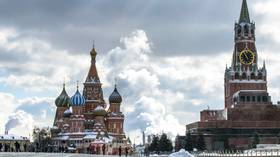Kremlin responds to NATO’s ‘military Schengen’ plan

NATO’s statements regarding the possibility of creating a “military Schengen” will likely increase tensions in Europe and will lead to an escalation of already strained relations with Russia, Kremlin spokesperson Dmitry Peskov has said.
His comments come after NATO’s European logistics chief, Lieutenant-General Alexander Sollfrank, called on European nations to ease national-level regulations to allow the rapid movement of troops, equipment, and ammunition in the event of a war with Russia.
Speaking to reporters on Friday, Peskov was asked whether the Kremlin viewed such suggestions by the NATO official as risking an armed conflict between Russia and Europe or as merely another escalatory step in the US-led alliance’s confrontation with Russia.
The Kremlin spokesman suggested Sollfrank’s statements more likely indicate NATO’s escalating confrontation with Russia, adding that the alliance has “always considered our country a conditional enemy. Now it considers our country an obvious enemy.”
“This is nothing but an attempt to escalate tension in Europe, which will have its consequences,” Peskov said, noting that the expansion of NATO cannot be left without a response from the Russian side.
Peskov’s comments come after NATO Secretary-General Jens Stoltenberg announced plans last year to bolster the bloc’s forces in Eastern Europe to 300,000 high-readiness troops in reserve, with 100,000 of these soldiers capable of reaching a potential battlefield with Russia within as little as a week.
The US-led alliance has also repeatedly signaled a desire to see Ukraine eventually join its ranks.
Moscow, meanwhile, has stressed that it would only accept a neutral and independent Ukraine and has described NATO’s expansion in Europe as a threat to Russian national security, and a key cause of the Ukraine conflict.












